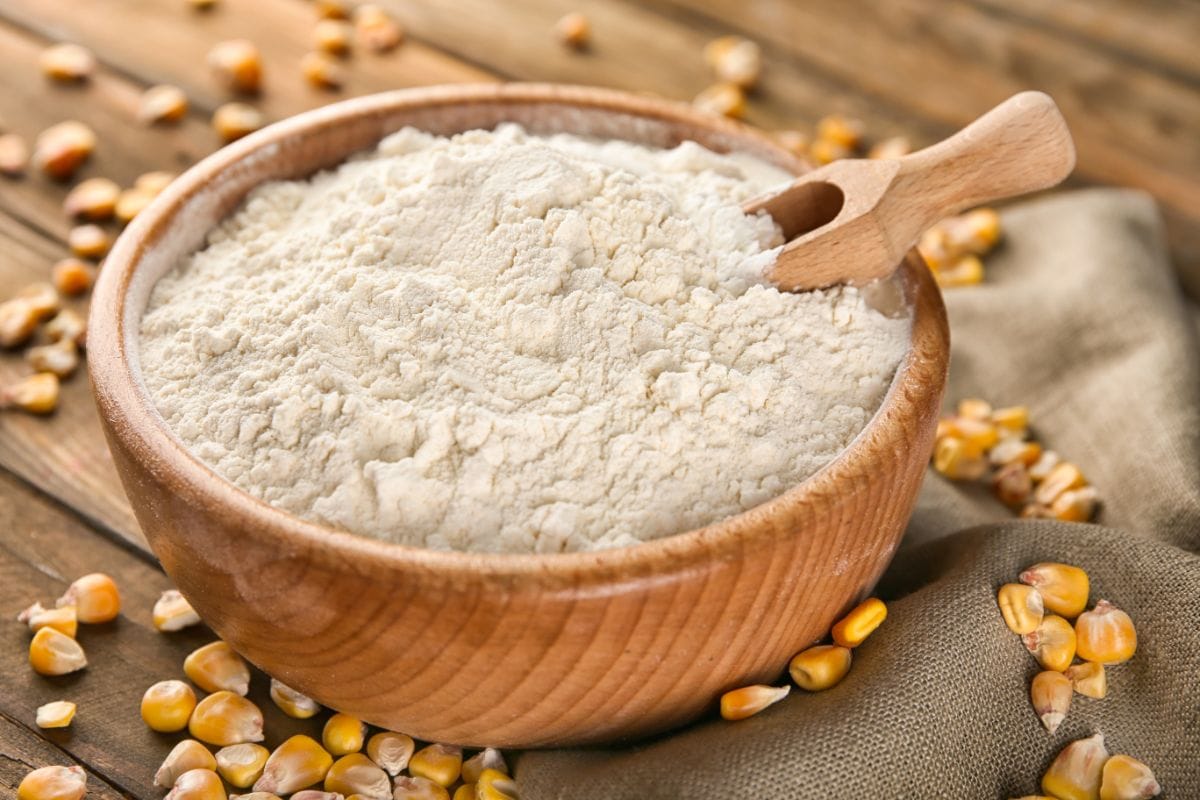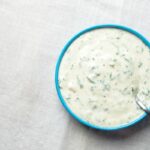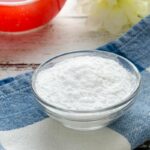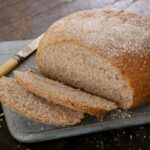If you are trying to live a gluten free life, you might be wondering if you need to say your goodbyes to cornstarch.
This ingredient, also called maize starch or cornflour, is a common thickening agent used in cooking. However, does a gluten free diet allow you to still use this product?
Celiac sufferers have to follow a gluten free diet, but it isn’t easy. Gluten is found is more than you can imagine, even things that shouldn’t contain gluten!
Baking recipes can go from fun to nightmarish, and sometimes it can be difficult to know what contains gluten and what doesn’t.
Corn starch is one of those ingredients that gets used for many things – from baking to getting your soups thickened. As such, it would be helpful to know if this product is actually safe to use.
So, if you have been wondering if cornstarch is gluten free, just keep reading to find out! We’re going to cover everything you need to know about this product.
Is Cornstarch Gluten Free?
Whether you’re on a gluten free diet or you simply want to minimize your gluten intake – we’ve got good news for you! Cornstarch is naturally gluten free!
This ingredient is made by finely grinding up the endosperm of corn. This is the tissue inside the grain, and it’s packed full of nutrients.
As corn is a gluten free grain, and no other ingredients are needed to make cornstarch, it’s 100% gluten free.
This is great for everyone, but especially someone with celiac disease. No one has to deal with watery gravy, and that’s worth celebrating.
Because cornstarch is naturally gluten free, you also don’t have the added issue of paying more for it as a gluten free product, which is always nice.
With that being said, it is possible that all cornstarch won’t be gluten free. Not because ingredients containing gluten are used, but because the area of manufacturing may have gluten.
This means that gluten may accidentally find its way into the cornstarch product, making it unsafe. Unfortunately, cross contamination is a common occurrence, and always something to be wary of.
That’s not to say that you should live in fear of all cornstarch, though. There are gluten free cornstarch brands that eliminate the possibility of gluten getting into the product.
So, if it is crucial for you to stay away from gluten, find one of these brands (such as Argo or Bob’s Red mill).

Are There Cornstarch Alternatives?
Thankfully, there are options available even if you don’t want to use cornstarch. Maybe you can’t get your hands on a particular brand, or you just want to try different substitutes.
Either way, there are some great options to test out. Let’s take a quick look at some options below.
Many of the options below are known as “modified corn starch”, and are great alternatives for cornstarch.
Modified food starch can be used like regular cornstarch would in most cases, and works well for various gluten free foods, especially in gluten free baking.
Wheat Flour
Wheat flour is not a gluten free product, but it is high in starch, fiber, and protein. It’s made from what, which is not a gluten free grain.
This makes it an appealing option for many people, but not suitable for anyone with gluten sensitivity or celiac disease.
Arrowroot Starch
Arrowroot powder is a popular thickening agent that is made from plants in the Maranta genus. The root is dried and ground up to create a fine powder that is high in fiber and gluten free.
Potato Starch
This is a refined starch made from crushed potato. As it doesn’t come from a grain, potato starch is gluten free.
However, it is also very low in protein and fat, but is high in carbs. Because of this, it isn’t a great option for anyone on a low-carb diet.
Tapioca Starch
Tapioca is made by finely grinding up cassava roots and is gluten free by nature. This tapioca starch is popular around the world and can be bought in a number of formats for use, including flakes, powder, or pearls!
As such, you can use this product for a variety of things, one of them being boba tea! As such, you can always enjoy your favorite drink even if you’re on a gluten free diet.
Rice Flour Starch
Made from finely ground rice, rice flour is incredibly popular in Asian cuisine. It is a naturally gluten free product, and works great as a substitute for wheat flour.
Rice flour products are colorless when it’s mixed with water, and works well as a thickener for anything from desserts to soups.
Ground Flaxseeds
Another product that is naturally gluten free, ground flaxseeds are great as toppings or added to recipes. However, they create a more gritty texture, which may be difficult for some people to get past.
Glucomannan
Derived from konjac roots, this ingredient is amazing for anyone on a low-carb or low calorie diet. It contains no carbs or calories, and is a pure fiber.
Glucomannan may reduce bad cholesterol if consumed daily, and is naturally gluten free.
Psyllium Husk
Psyllium husk is another great option for a thickening agent that’s gluten free. This is commonly used in baking in gluten free recipes, as well as for a source of dietary fiber.
Xanthan Gum
This is made by fermenting sugar with a bacteria known as Xanthomonas campestris. A gel is produced, which is then dried and made into a powder.
Only small amounts of xanthan gum is needed to reach the desired effect, and too much can cause digestive issues, though this is rarely an issue.
Guar Gum
Made from guar beans, this is made from the endosperm and ground into a fine powder. Guar gum is gluten free and a great option if you’re trying to avoid gluten in cooking and baking.
Something To Remember
Cornstarch, along with several other thickening agents, are naturally gluten free. However, to avoid any gluten contamination from factories, always look for products that are labeled gluten free.
A gluten free certification can be crucial, and it is worth spending some extra time to find the right brand if you need it.
Be sure to look for gluten free cornstarch brands to be safe, and ensure they are certified gluten free. Following a gluten free diet can be difficult enough, so you always need to take extra steps.
Cross contamination is a real issue that many manufacturers experience, and it can be very difficult to control. As such, that gluten free certification is key.
Final Thoughts
Finding gluten free products can be a real challenge. Anyone who has celiac disease will know the struggle of finding decent gluten free alternatives in their day-to-day lives. However, there are some good options out there.
Gluten free food shouldn’t have to be a struggle to find, and while there are modified cornstarch options, they aren’t already readily available. While corn starch itself contains no gluten, the issue of cross contamination can be a real danger.
Although you don’t necessarily need to substitute cornstarch if you don’t wish to eat gluten, you still can. However, ensure that everything you eat has a gluten free label, or any kind of gluten free labeling to ensure that it is safe to eat.
This includes packaged goods, baked goods, and anything else. That way, you can follow a gluten free diet without worrying about cornstarch gluten.
Frequently Asked Questions
Do Corn Kernels Contain Gluten?
No, corn kernels are gluten free and are suitable for a gluten free diet.
What Is Modified Corn Starch?
Modified food starch is made by either chemically, physically, or enzymatically changing a starch in some way to change its properties to use it.
Do You Get Gluten Free Cornstarch?
Yes! While cornstarch is gluten free by nature, there are certified gluten free brands that promise no cross contamination in the manufacturing process.
Is All Cornstarch Gluten Free?
Cornstarch is gluten free by nature, but cross contamination can lead to trace amounts of gluten being present. As such, looking for certified gluten free cornstarch is crucial.
Are There Gluten Free Alternatives To Wheat Flour?
There are some great gluten free alternatives to sweat flour. These include arrowroot, ground flaxseed, ground guar bean, and tapioca, among many other things.
Are ground flax seeds a good cornstarch alternative?
Ground flax seeds are a more coarse flour-type product that is gritty. It is a completely different kind of product to cornflour, but does have its uses.
Can You Have Cornstarch On A Gluten Free Diet?
Yes! Gluten free cornstarch is a good option as a thickening agent if you follow a gluten free diet. Cornstarch gluten is nothing to worry about and you don’t need to avoid cornstarch.
Is Cornstarch Gluten Something To Worry About?
No, cornstarch is gluten free and is suitable for a gluten free diet!
Is Modified Cornstarch Gluten Free?
Most modified cornstarch is gluten free, so you can use them in your gluten free diet. However, you should always double check this, as there are many different types.
Which Foods Often Have Gluten In Them?
Baked goods and packaged foods will often contain gluten, As such, check for a gluten free label before buying. Generally, anything that contains what flour will contain gluten.
Can You Still Eat All Your Favorite Foods If You Are Avoiding Gluten?
Yes! There are gluten free alternatives for everyone out there. From gluten free oats and banana bread and many other things. Because of the substitutes, some products will contain more fiber than regular foods.










